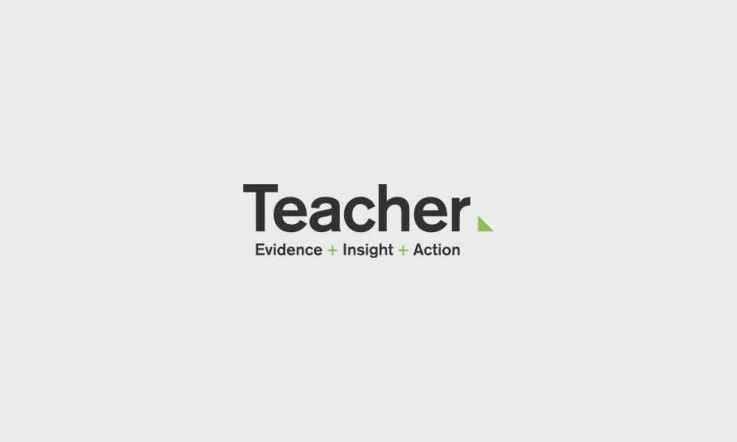Here's a tale to inspire confidence. A newly credentialed primary teacher was asked by her professional superiors about her strategies for boosting NAPLAN results among her charges. Her reply - ‘I'll teach them.' This was more than a bit of chutzpah from a novice.
The self-confidence of this young woman has everything to do with the specific skills she acquired in her training at the University of Canberra as to how to tutor young children in the foundations of the English language.
The story comes from Dr Misty Adoniou, a Senior Lecturer in Language and Literacy at Canberra. Adoniou picked up her university's Vice-Chancellor's Award for Teaching Excellence in 2014, and to see her in action, as I did late last year, is to understand why. In front of a group of mid-career professionals, Adoniou expertly and tactfully explained what a lot of them thought they knew, but struggle to explain. Namely, the difference between the bland pro forma writing of many primary children, and a more evocative approach.
Adoniou showed examples of both. The revelation was that the superior work, full of descriptive phrases and with an understanding of the way that verbs can carry the weight of a sentence, was the product of a very young child in a low-SES school. Adoniou makes a claim that should be unremarkable – that any child who is explicitly taught about sentence structure (a key NAPLAN criterion), and in particular about the way that good writers use language to maximum effect, has the potential to develop as a confident writer and reader.
And yes, a working knowledge of things like regular verbs, conjunctions and past participles does help.
The point is not to be a bore or a fundamentalist, but to address the consequences of a complete absence of grammar in the training of an entire generation of teachers. While there has been first-class work by university linguists, arguably not enough has been done to translate this into effective teaching practice. And the knock-on effect can be seen in student data.
Australian Council of Educational Research (ACER) analysis of the PIRLS (Progress in International Reading Literacy Study) reading tests shows the scale of the problem – a depressing 45 per cent of Australian children say ‘they only read if they have to'.
Misty Adoniou blames the low-level readers and uninspiring and meaningless workbooks (‘circle the nouns and verbs') for the poor comprehension of many young readers and a total lack of knowledge about the purpose and meaning of particular words and phrases. And to state the obvious – if you are not exposed to rich, emotionally engaging literature, then how are you ever going to be able to imitate and then innovate around your own work?
The problem goes all the way up the chain. I've lost count of the number of high school principals who have told me of how under-prepared many Year 7 children are for the complexities of secondary schooling – largely because their reading and writing skills are so poor. The penny has dropped that this issue affects all disciplines. Maths is a case in point, with problems requiring a sophisticated understanding of the text.
So what to do?
The point that I've emphasised in my book Class Act is that while there is a solid understanding of what needs to be done, we're not that good at sharing knowledge and replicating success. We can blame bureaucratic structures, inconsistent policies, professional indifference and a million other things. More sensible is to consider what works in high-performing countries and adapt for local circumstances.
Singapore's National Institute of Education is seen as something of a gold standard in the training of teachers and a notable feature is the two-way learning process they have developed with schools. Effective practice in the latter informs the teaching at the Institute.
Many of our own Australian universities are starting to work in this way and teachers are the better for it. The next step may be a regulatory one.
The new chair of AITSL (the Australian Institute for Teaching and School Leadership), Professor John Hattie, is signalling far more rigour in the accrediting of teacher training courses. In line with his many years of research into what constitutes effective practice, Hattie seems determined to develop greater commonality around high-impact methods.
Top of that list should be agreement around effective practice and methodology in the teaching of reading and writing. How many universities, I wonder, can confidently say that graduates from their education faculties enter the classroom with a linguistic tool-kit that can unlock the magic of English for young students?
The PIRLS data which ranks Australian children in the middle of the international pack suggests a substantial deficit in this area. The response in Canberra has been to boost the funding of the controversial Direct Instruction program. One can see its easy appeal. DI's promise is a strict, clear formula for teaching sounds and words – and for children who start school with significant developmental challenges, there is evidence that it is working. The open question is how far this takes them.
So, back to Misty Adoniou. She argues (and she's not alone) that the ‘read from the script' approach of DI amounts to a surrender of one's professionalism. Further, that the ambition of teachers should not be confined to the achievement of a basic level of reading proficiency, but should instead look at the multiple ways we can help children use the full repertoire of the English language.
Adoniou's methods and advocacy can be seen as an attempt to find a space between two extremes – the conservatives, who are nostalgic for a return to 1950s-style grammar instruction, and the parts of the Academy that still favour obscurantism. As she said when I interviewed her for Class Act: ‘there is a lot of snobbery on this subject, and on all sides. I hate the way the debates around education have become so either/or. My job is to support teachers. And when it comes to language, what I stress is that being literate is about being a contributor. It's as simple and as important as that.'
Class Act by Maxine McKew looks at some of the most important questions in education. It is available for purchase at www.mup.com.au



